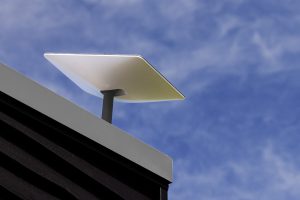It seems that Elon Musk’s Starlink satellite constellation is not only aimed at delivering high-speed Internet access. Starlink also plans to add a suite of similar products to its portfolio, from a dedicated calling service, emergency backup for voice calls, and more reliable internet connectivity for low-income customers through the Lifeline program of the US government, based on recent submissions to the Federal Communications Commission (FCC).
In SpaceX’s petition to the FCC for a designation as an Eligible Telecommunications Carrier, details of Starlink’s expanded services were stated (ETC). An ETC designation is required in some US states where the satellite internet program won government funding to provide internet access to underserved areas, according to the Elon Musk-led company. It is also required to obtain reimbursement from the FCC’s Lifeline scheme, which provides low-income consumers discounts on telecom services.
Starlink’s beta today only offers internet access, but in its filing, SpaceX noted that “Starlink Services will provide voice telephony services, including: (a) voice-grade access to the public switched telephone network (‘PSTN’) or its functional equivalent; (b) minutes of use for local service provided at no additional charge to end-users; (c) access to emergency services; and (d) toll limitation services to qualifying low-income consumers in accordance with 47 CFR §§ 54.500, et seq. Starlink Services will offer voice services on a standalone basis at rates that are reasonably comparable to urban rates.”
SpaceX also stated that “Starlink Services would provide telephone services connecting consumers to its MSP’s platform using its network capacity, which is available to consumers through their customer premises equipment.” Interestingly enough, the Elon Musk-led company added that Starlink customers would have the option to use a third-party, conventional phone for its service. This may prove to be a key selling point for the service, especially given the robust options of the mobile market today.
SpaceX’s FCC filings have also stated, like other VoIP providers, that Starlink would sell a 24-hour battery backup to customers. Such a product will allow consumers, even in the event of a power failure or other emergency situations, to access Starlink services. These redundancies would not only be enforced at the user level, either, since, as per Ars Technica, backups would also be introduced at the network level.
“At the user level, Starlink Services will offer a 24-hour battery backup option for user equipment that will provide the ability to make phone calls in the event of a power outage. At the system level, Starlink Services is building redundancy into the network. For example, every user will have multiple satellites in view with which it can communicate. Additionally, every satellite will have multiple gateway sites in view with which it can communicate. The Starlink traffic routing system ensures that every user is served with bandwidth before users demanding more bandwidth get additional throughput assigned, which gives the Starlink network robustness in the event of emergencies requiring high throughput,” SpaceX noted.
Starlink’s battery backup technology is likely to be cost-effective and industry-leading, given that Tesla is designing its own custom battery cells, an electric vehicle and energy company also headed by Elon Musk. If SpaceX ends up leveraging Tesla’s batteries like the company’s custom-designed 4680 tabless cells, Starlink’s 24-hour backup batteries may very well become one of, if not the best in the industry.
In addition to a dedicated phone service and a 24-hour backup battery, SpaceX also addressed a program that would carry the resources of Starlink to households with low incomes. For now, SpaceX’s FCC filings do not contain any information about this initiative. However, given that the Lifeline program already offers a monthly subsidy of $9.25 for low-income households to receive broadband access or a monthly subsidy of $5.25 per household for telecommunications service, as well as the fact that the Starlink beta currently costs $99 a month, there seems to be a good possibility that SpaceX will in the future provide a lower-cost version of its satellite internet service.
You can read SpaceX’s FCC petition for an ETC designation below.





